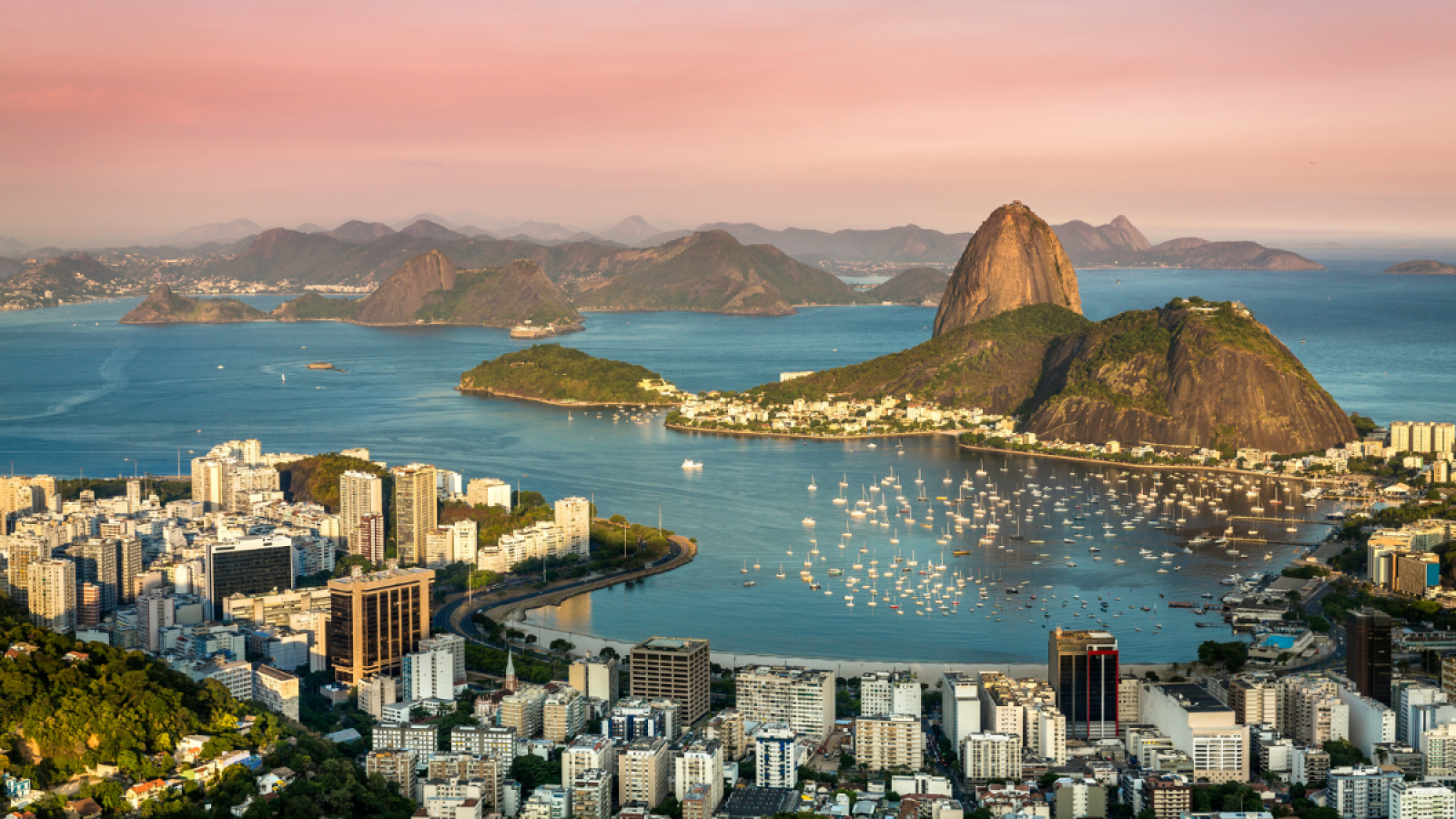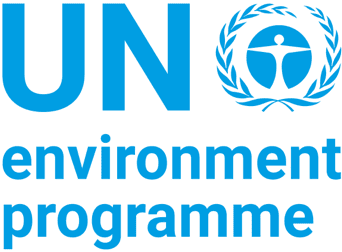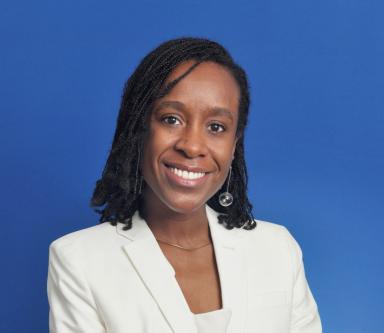United Nations Environment Programme
Brazil
Brazil is the most biologically diverse country on the planet and the sixth most populous. Of its 212 million inhabitants, 87% reside in urban areas. UrbanShift supports three cities in Brazil: Belém, Florianópolis and Teresina.
The UrbanShift project in Brazil is implemented by UNEP and executed by the Ministry of Science, Technology, and Innovation (MCTI) through the CITinova II project, in partnership with the Center for Management and Strategic Studies (CGEE), the Brazilian Biodiversity Fund (FUNBIO) and UNEP Brazil.
The largest country in South America and the fifth-largest in the world by area, Brazil harbors over 60% of the Amazon rainforest. It’s also home to five other important natural biomes – Caatinga, Cerrado, the Atlantic Forest, Pantanal and the Pampa, contributing to the country’s unparalleled biodiversity.
Brazil’s biomes provide vital ecosystem services upon which the Brazilian economy is heavily reliant; they also serve to moderate environmental conditions, mitigating droughts and floods and protecting soils from erosion. The country has over 1,600 protected areas, which represent 16% of its continental territory and 0.5% of the marine habitat.
Brazil made astounding economic and social progress between 2003 and 2014, lifting 29 million people out of poverty. However, the financial crisis that gripped the country in subsequent years, as well as the devastation caused by the COVID-19 pandemic, has deeply impacted lower-income and vulnerable populations, reversing some of the earlier successes.
- POPULATION
-
212.6 million
- URBAN ECONOMIC DRIVERS
-
Tourism, Industry, Innovation & Technology
- URBANIZATION
-
87%
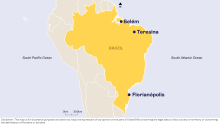
THE CHALLENGE
Since the early 1970s, Brazil has consolidated itself as an urban country, driven to a great extent by rural migrants looking for employment and opportunities in fast-growing urban centers. Currently, nearly 87% of the population resides in urban areas, which represent only 0.31% of the national territory.
This unprecedented urban expansion has contributed to a range of pressing problems in Brazilian cities: for instance, 42% of urban residents lack access to proper sanitation and sewage facilities, leading to the contamination of water bodies and an increase in waterborne diseases. Brazil also has one of the highest motorization rates in the region, which has caused a serious decline in urban air quality. Nationwide, it is estimated that nearly 50,000 deaths per year can be attributed to air pollution and greenhouse gas (GHG) emissions.
In addition, the country is losing primary rainforest in the Amazon at an alarming rate, mainly due to illegal and unsustainable exploitation of the forest. The horizontal growth of Amazon cities is also putting pressure on surrounding green areas. This threatens not only local but global climate, and the Brazilian metropolises are already grappling with the consequences – sea level rise, torrential storms, more intense and frequent heat waves and wildfires.
URBANSHIFT’S INTERVENTION
UrbanShift’s objective is to support Brazilian metropolitan regions to reduce GHG emissions, conserve biodiversity, bolster resilience, and improve quality of life for all residents. We aim to achieve this objective through promoting integrated metropolitan planning and urban technology investments, for e.g., through the SIS+ (System of Innovations and Solutions for Sustainable Urban Planning). The SIS+ platform will provide urban practitioners with geospatial and technical data to help design integrated and sustainable urban solutions; it will also assist local governments in identifying innovative solutions and financial resources to implement city projects. You can find specific examples of the local interventions below.
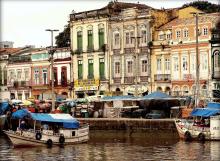
BELÉM METROPOLITAN REGION
Located in the northern reaches of the Amazon rainforest along the Atlantic coast, the Belém Metropolitan Region (Belem MR) is the 11th largest urban area in the country and one of the primary economic centers of the Brazilian Amazon.
Consisting of seven municipalities, Belém is considered the gateway to the Amazon. The city witnessed a sharp increase in population in the 1960s-70s, following the construction of the BR 316 Highway, which connected Belém with the capital, Brasília. Today, Belém continues to grow, fuelled by the local mining, energy and agricultural sectors. This rapid growth, coupled with insufficient urban planning, has resulted in significant degradation of the surrounding rainforest, despite the high degree of environmental protection the region enjoys.
Belém will receive support from UrbanShift to co-create and pilot low-emission solutions on the Almirante Barroso Avenue and to develop a strategy for a “Low-Emission Belém City-Center". We’ll also work to improve sustainable agroforestry practices on Combú Island, enhancing livelihood options for local communities.
FLORIANOPOLIS METROPOLITAN REGION
The Metropolitan Region of Greater Florianópolis (Florianópolis MR) is composed of nine municipalities and is located on the coast of south-eastern Brazil, within the Atlantic Forest.
With a population of 1.2 million, Florianópolis is one of Brazil’s fastest growing economic centers, spurred by local industry, a specialized service sector, and the strong presence of universities, incubators and think tanks.
Santa Catarina Island, where the city of Florianópolis is situated, is also an important tourist destination. However, the rugged terrain of the area, dominated by the protected Serra do Tabuleiro mountains, constrains the amount of land available for further development, pushing urban growth towards low-lying areas and the coastline.
UrbanShift will support Florianópolis to strengthen integrated planning through the development of socio-environmental macro-zoning and the piloting of a low-emission neighborhood in the district of Capoeiras. We’ll also be initiating investment projects in the Pirajubae Marine Extractive Reserve and Carijós Ecological Station, demonstrating methodologies that measure the health of urban protected areas and foster community-based conservation.
GREATER TERESINA INTEGRATED DEVELOPMENT REGION
Located in one of the poorest and warmest regions of Brazil, the Greater Teresina Integrated Development Region (RIDE) is composed of 15 municipalities cutting across two federal states, Maranhao and Piauí. These two states have the lowest GDP per capita in the country, corresponding to just 2.1% of the national GDP, while 37% of Teresina’s residents live under the poverty line.
The increase in population in the RIDE – primarily comprised of migrants from the surrounding rural areas – combined with low municipal income and limited municipal capacity, the difficulties of managing an agglomeration across two federal states, and the hot, harsh climate, have created an overlapping series of problems for the region. These challenges include air, water and soil pollution, urban sprawl, and the increased use of private vehicles relative to public transport.
The RIDE will receive support from UrbanShift in enabling gender-sensitive inter-municipal governance and management processes for the region, as well as piloting solutions for a low-emission city block in Teresina’s center.
PROJECT BUDGET
- GEF Grant: $12.5 million
- Co-financing: $185 million
Implementing Agency
The UrbanShift project in Brazil is implemented by UNEP and executed by the Ministry of Science, Technology, and Innovation (MCTI) through the CITinova II project, in partnership with the Center for Management and Strategic Studies (CGEE), the Brazilian Biodiversity Fund (FUNBIO) and UNEP Brazil.
LOCAL TEAM
UrbanShift's UNEP partners in Brazil are represented by the following staff members and consultants.
Regional Coordinator
Bruno Incau coordinates UrbanShift's capacity-building offer in Brazil.
Related Content
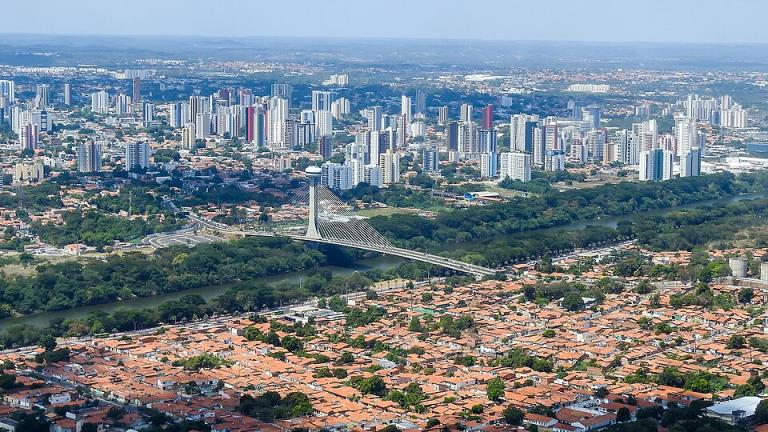
City-Business Accelerator (CiBiX) workshop in Teresina
The workshop will focus on addressing the critical issue of extreme heat in the city of Teresina, Brazil.
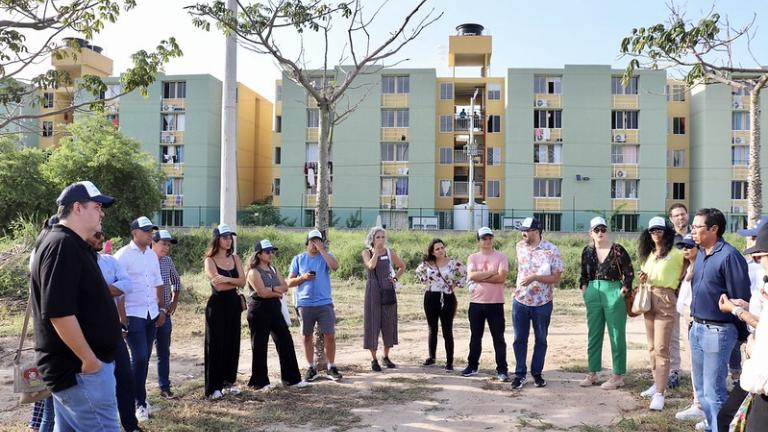
How Teresina is Accelerating its Transition to a Green and Resilient City
From UrbanShift's capacity-building activities, this scorching city in northeastern Brazil is drawing inspiration and technical knowledge to build sustainability from the ground up.
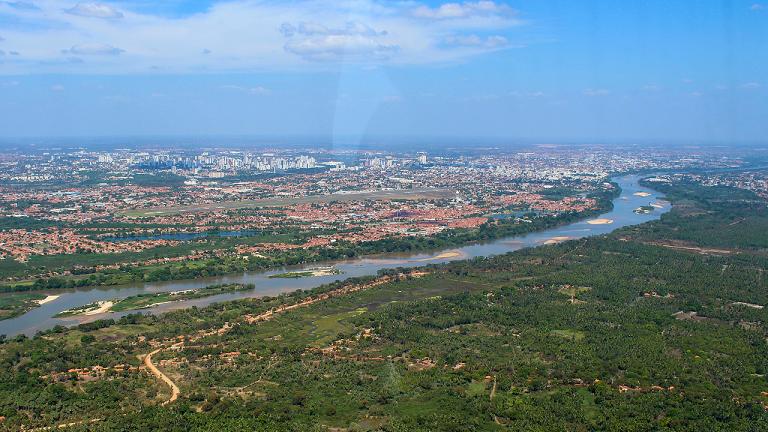
Second Brazil National-Local Dialogue
The dialogue will focus on further strengthening metropolitan and interfederative governance across three Brazilian regions.
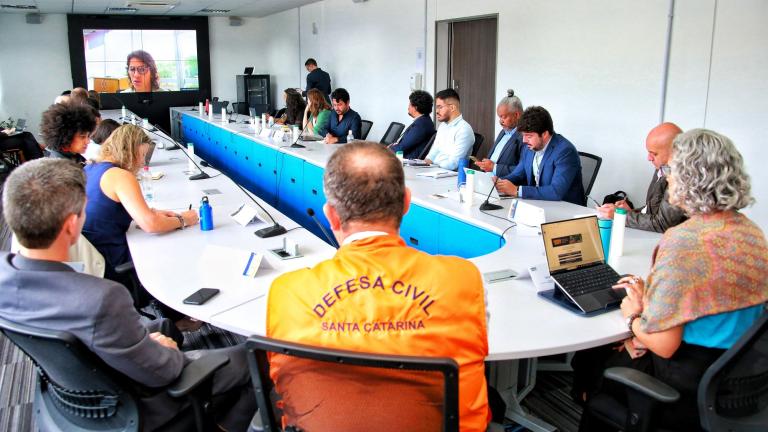
Integrated Planning and Multilevel Governance: Insights from the UrbanShift National-Local Dialogue in Brazil
The UrbanShift Brazil National-Local Dialogue emphasized the critical role of integrated urban planning and multilevel governance in addressing climate challenges and fostering sustainable development across Brazil’s rapidly growing cities.
